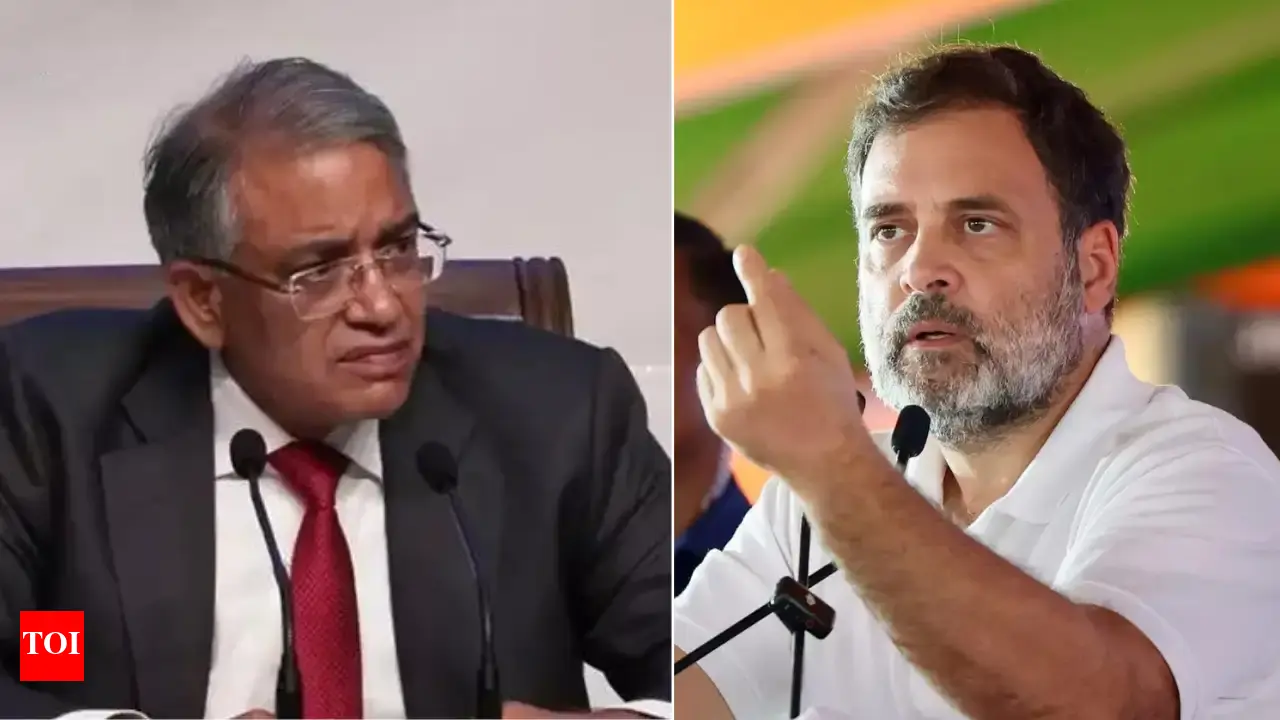The Opposition is Defeating Itself on Its Own Chessboard
By Lalit Garg

India is celebrated worldwide as the largest democracy, with nearly one billion voters, countless political parties, and a tradition of free and fair elections. Yet, the health of a democracy is not defined only by the ruling government; it equally depends on the maturity, vision, and constructive role of the opposition.
In theory, the opposition is not the enemy of the state. It is a vital pillar of democracy—responsible for holding the government accountable, voicing people’s concerns, and presenting credible alternatives. But in practice, India’s opposition today appears adrift—caught in a spiral of negativity, baseless allegations, and disruptive politics. In this process, it is not the ruling party that suffers; it is democracy itself that is weakened.
Allegations Without Evidence
The most recent example is Congress leader Rahul Gandhi’s accusations of “vote theft,” EVM tampering, and manipulation of voter rolls. Such claims, made without evidence, directly question the credibility of the Election Commission of India—one of the most respected constitutional institutions. Chief Election Commissioner Gyanesh Kumar firmly rejected these charges, demanding either proof or a public apology.
Unverified attacks of this nature undermine faith in democratic processes. Elections are the soul of democracy; when citizens lose faith in their fairness, democracy itself becomes fragile. Ironically, by spreading distrust, the opposition undermines the very system that sustains its own existence.
A Pattern of Negativity
This is not an isolated episode. Over the past decade, opposition parties have opposed reforms not out of reasoned debate but political compulsion:
Linking Aadhaar to bank accounts, a move to reduce corruption.
The abrogation of Article 370, integrating Jammu and Kashmir into the national framework.
The CAA and NRC, aimed at sheltering persecuted minorities.
Electoral verification exercises, portrayed as conspiracies.
Instead of offering rational alternatives, the opposition has relied on fear campaigns, protests, and obstruction in Parliament.
Contrast with Mature Democracies
In countries like the United States and the United Kingdom, opposition parties criticize but also cooperate when national interest is at stake. The UK’s Shadow Cabinet functions as a responsible alternative government, scrutinizing and proposing policies.
In India, however, opposition often chooses disruption over debate. Parliament, the temple of democracy, has increasingly been reduced to sloganeering, walkouts, and boycotts. Important legislation—covering women’s safety, environment, and economic reforms—has been stalled not for policy disagreements but for political theatre.
Lessons from India’s Democratic Past
History shows that a united and visionary opposition strengthens democracy. During the Emergency (1975–77), leaders across ideologies joined forces to restore democratic freedoms. In 1989, coalition politics balanced power and deepened accountability.
But since 2014, the opposition has lacked unity, leadership, and a positive narrative. Internal rivalries and a narrow vision have left it reactionary. Rather than offering solutions, it has focused on obstruction and criticism.
National and International Implications
Irresponsible opposition politics has consequences beyond borders. Questioning the integrity of the armed forces or dismissing India’s foreign policy feeds propaganda in countries like Pakistan and China. Democratic dissent is healthy, but when it turns into reckless disruption, it damages national unity and weakens India’s global standing.
The Way Forward
The responsibility of strengthening democracy lies with both the ruling party and the opposition. While Prime Minister Narendra Modi has often underlined the importance of constructive criticism, true democratic maturity demands continuous dialogue, transparency, and scrutiny.
For the opposition, this requires a complete transformation:
Move from rhetoric to responsibility.
Restore Parliament as a forum of debate, not disruption.
Replace fear-mongering with constructive criticism.
Present visionary policies on jobs, inflation, education, healthcare, and security.
Conclusion
The strength of India’s democracy lies not only in a powerful government but also in a credible and creative opposition. By confining itself to negativity, today’s opposition risks losing not only elections but also its relevance.
Democracy is not a battle between enemies but a dialogue between partners in nation-building. Unless the opposition realizes this truth and reinvents itself, it will continue to weaken democracy instead of strengthening it. In such a case, the true loser will not be the ruling party—but India’s democratic spirit itself.
साभार :
© CopyRight Pressnote.in | A Avid Web Solutions Venture.






